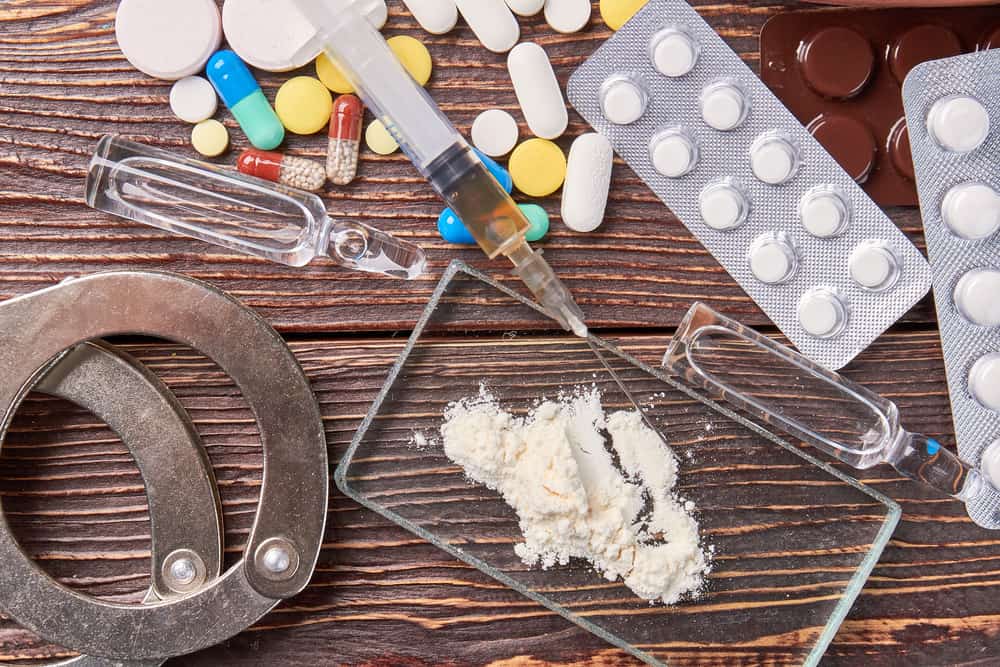Located in Palm Beach County on the southeast tip of Florida, Delray Beach is known for its beach, nightlife, and ethnic diversity. However, the characteristics that make it popular among vacationers, snowbirds, and residents also make it a hotspot for drug trafficking and excessive substance use.
If you or someone close to you is struggling with a substance use disorder, Guardian Recovery Network can help. We will work with you to develop an individualized and effective program to help you recover from addiction and get you started on the road to long-term recovery. We believe in the benefits of a full curriculum of clinical care, beginning with medical detoxification, transitioning into a higher level of treatment, and concluding with personalized aftercare planning. Contact us today to learn more about the treatment options we offer in your area.
How Does Delray Beach Compare to Other Cities in Florida?
Delray Beach is home to about 68,000 people. Its four largest ethnic groups are White (Non-Hispanic), Black or African American (Non-Hispanic), White (Hispanic), and Asian (Non-Hispanic).
Like much of coastal Florida, the ethnic diversity that makes Delray Beach’s culture so rich also makes it easy for drug traffickers and criminal groups from Colombia, the Dominican Republic, Mexico, Jamaica, and other countries to blend in. These traffickers take advantage of the port of Palm Beach and well-developed transportation infrastructure to move illicit drugs from their home countries into the bustling metropolises of the state and the U.S. at large.
Transporters use boats, commercial and private aircraft, and package delivery services to sneak illicit drugs into the state. Some also use commercial trucks, personal vehicles, buses, and railcars to move illegal substances to other major distribution centers like New York and Atlanta.
Most Used Drugs in Delray Beach & Palm Beach County
Delray Beach falls into the Miami-Fort Lauderdale-West Palm Beach Metropolitan Statistical Area (MSA). According to the National Survey on Drug Use and Health (NSDUH), approximately 561,000 people aged 12 or over in the region reported using an illicit drug in the past year. That number represents 12.5% of the population.
The South Florida High Intensity Drug Trafficking Area (HIDTA) reports that the primary illicit drug threats in the area are:
- Cocaine – powder and crack
- Heroin
- Marijuana
- MDMA (ecstasy)
- Diverted pharmaceuticals
Delray Beach, in particular, has been reported to have the highest use rates in the state for methamphetamine and cocaine.
If you have a dependence on any of these substances and are thinking about quitting, it’s essential to educate yourself about the basics of recovery and how to choose an addiction treatment program.
Drug Overdose & Fatality Statistics in Florida
From 2019 to 2020, the number of drug-related deaths in Florida rose by 35%, from 26.8 per 100,000 to 36.2 per 100,000.
The Florida Department of Health reported the following statistics for 2022:
- 105,490 EMS overdose responses
- 51,752 doses of Naloxone administered
- 1,121 infants were born with neonatal abstinence syndrome
In addition, non-fatal overdose emergency department visits increased from 37,343 in 2018 to 50,803 in 2021.
In Palm Beach County, there were 606 fatal overdoses in 2021. Other statistics are as follows:
- 5,606 EMS overdose responses
- 1,947 doses of Naloxone administered
- 47 infants were born with neonatal abstinence syndrome
We Are Here For You
Let Us Help You Heal
Our Drug & Alcohol addiction treatment experience is second to none.
Learn how we can help by speaking with one of our Treatment Advisors today.
What Cities in Florida Have the Highest Drug Use?
The highest rates of drug use in Florida can be seen in cities such as Miami, Orlando, Tampa, and Jacksonville. In 2019, the Miami metropolitan area reported the most opioid-related incidents, with over 6,500 cases. Orlando followed with more than 4,500 incidents in the same year. Meanwhile, Tampa and Jacksonville reported more than 3,000 and 2,000 opioid-related cases, respectively.
Addiction Treatment in Delray Beach, FL
If you or someone you love is living in the Delray Beach, Florida, area and is currently struggling with a substance use disorder of any type or severity, there are numerous treatment options available. The best treatment option for you will depend on several factors, including the type of substance you were using, the duration of use, and the presence of any dual diagnosis disorders. Delray Beach is home to several reputable detoxification centers, inpatient treatment centers, and intensive outpatient programs. Guardian Recovery Network has several effective levels of care available to those in Delray Beach and surrounding areas.
- Immersion Recovery Center — Immersion is a multi-phased program, located in Delray Beach. The name Immersion refers to the 12-Step immersion method where individuals actively work the 12-Steps. The program can accommodate individuals needing any level of care, including medical detox, residential inpatient, partial hospitalization, intensive outpatient or continued aftercare. Our two-pronged approach provides evidence-based clinical treatments while engaging clients with the 12 Steps, and has proven to be highly effective.
- Guardian IOP — Intensive outpatient treatment can provide you with the continuing support you need after inpatient care or can be used as a stand-alone solution to substance use disorder. Our intensive outpatient program in Delray Beach typically meets for 3-5 hours, 3-5 days a week. IOP help you learn how to cope with life’s daily struggles to remain sober and offers the camaraderie of peers who are experiencing similar challenges and expert clinicians.
- Guardian Adolescent — Adolescent recovery care is available in Boca Raton at Guardian Adolescent. This program is designed especially for those under the age of 18 who have been struggling with substance misuse and related issues. We try to make recovery fun and engaging while helping clients develop skills that will help them handle peer pressure, and cope with the challenges that may drive them back to substance misuse.
- CuraSouth — This medical detox facility near Tampa Bay is located in a residential neighborhood giving it a home-like feel.. CuraSouth utilizes a variety of medications to help ease the pain of withdrawal and make detox as safe and comfortable as possible.While in detox, clients receive around-the-clock medical supervision and participate in a schedule of recovery-related activities, all under the guidance of our expert and compassionate case managers.
Begin Healing Now!
Have A Call With One Of Our Treatment Advisors
Don’t Suffer Any Longer
Contact Us Today
If you live in or near Delray Beach, Florida, struggling with substance use disorder, and wondering if you need treatment, you do not have to go it alone — help is available right now. No matter the substance, the best way to overcome addiction is with the support of experienced, trusted professionals like those at Guardian Recovery Network. We provide comprehensive treatment, including medically-assisted detox, therapy, specialty programs, and reintegration support. Our caring and experienced administrative, medical, and clinical teams will guide you through every step of your recovery process from the first time you call. We provide a complimentary assessment and a free insurance benefits check and help coordinate local travel to our facility. All you have to do is ask for help; we will take care of the rest. Contact us today.
Get Started Now
Give us a call 24/7
(888) 693-1894


Reviewed for accuracy by:
Anna Marie Barrett LCSW, CYT
Anna earned her Masters of Social Work at Barry University in Miami, FL in 2017 and completed her internship in co-occurring disorders. Anna has a Bachelors of Art in Religious Studies from Naropa University and is a certified yoga and meditation instructor. Anna has received specialized training in somatic counseling with an emphasis on body-centered psychotherapy.




















